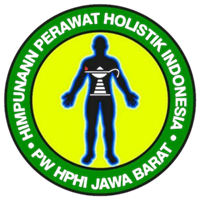Optimizing Nurse Staffing: The Impact of Nurse-to-Patient Ratios and Empowerment on Patient Satisfaction in Riyadh Health Clusters
DOI:
https://doi.org/10.56359/gj.v6i2.815Keywords:
employee empowerment, nurse-to-patient ratios, patient satisfactionAbstract
Introduction: Saudi Arabia’s Vision 2030 has transformed healthcare delivery through the Riyadh Health Clusters, integrating hospitals and primary care centers to improve efficiency and patient outcomes. Within this context, nurse-to-patient ratios and employee empowerment have emerged as critical factors influencing patient satisfaction but remain underexplored in the Saudi healthcare system.
Objective: This study examines the impact of nurse-to-patient ratios and employee empowerment on patient satisfaction within Riyadh Health Clusters, a transformative healthcare model under Saudi Arabia’s Vision 2030.
Methods: Using a quantitative, cross-sectional design, data were collected from 384 healthcare professionals, predominantly nurses, across three clusters.
Results: Linear regression analyses revealed a statistically significant but modest positive relationship between nurse-to-patient ratios and employee empowerment (β = 0.18, R² = 0.04, p < 0.05), underscoring the limited explanatory role of staffing adequacy in isolation. In contrast, employee empowerment demonstrated a robust impact on patient satisfaction (β = 0.45, R² = 0.56, p < 0.001), highlighting its centrality to care quality. The findings align with Kanter’s Structural Empowerment Theory but diverge from Western models due to Riyadh’s unique challenges, including hierarchical organizational cultures, a predominantly expatriate nursing workforce (70%), and urban-rural resource disparities.
Conclusion: The study emphasizes the need for context-specific strategies that integrate staffing reforms with empowerment initiatives, such as leadership training and participatory decision-making, to mitigate workforce burnout and standardize care practices. These insights advance global healthcare literature by contextualizing empowerment dynamics in non-Western settings and offer actionable recommendations for policymakers to align Riyadh’s cluster model with Vision 2030’s patient-centered goals.
Downloads
References
AbuAlRub, R. F., & Al-Asmari, A. A. (2011). Job satisfaction, job performance, and organizational commitment of nurses in Saudi Arabia. Journal of Nursing Scholarship, 43(3), 217-225.
Aiken, L. H., Clarke, S. P., Sloane, D. M., Sochalski, J., & Silber, J. H. (2012). Hospital nurse staffing and patient mortality, nurse burnout, and job dissatisfaction. JAMA, 288(16), 1987-1993.
Aiken, L. H., Sloane, D. M., Bruyneel, L., Van den Heede, K., Griffiths, P., Busse, R., Diomidous, M., Kinnunen, J., Kózka, M., Lesaffre, E., McHugh, M. D., Moreno-Casbas, M. T., Rafferty, A. M., Schwendimann, R., Scott, P. A., Tishelman, C., van Achterberg, T., & Sermeus, W. (2018). Nursing skill mix in European hospitals: Cross-sectional study of the association with mortality, patient ratings, and quality of care. BMJ Quality & Safety, 27(7), 559–568. doi: 10.1136/bmjqs-2017-006878
Al-Mutair, A. S., Alharthy, N., & Manias, E. (2020). Factors affecting nurses’ empowerment in Saudi Arabia: An integrative review. Saudi Pharmaceutical Journal, 28(12), 1653-1662.
Alomari, N. A., Alshehry, B., Alenazi, A. H., Selaihem, A., AlQumaizi, K., Almishary, M., Elshinnawey, M. A. M., Alsuwayt, S. S., & AlHadlaq, R. K. (2021). Model of care knowledge among Riyadh First Health Cluster staff. Journal of Family Medicine and Primary Care, 10(8), 3094–3104. doi: 10.4103/jfmpc.jfmpc_405_21
Alshamrani, M. M., Almazrou, A. A., & Bamuhair, S. S. (2018). The impact of structural empowerment on job satisfaction among nurses in governmental hospitals in Jeddah, Saudi Arabia. Saudi Medical Journal, 39(7), 685-692.
Farrag, N., Alshammari, F., Alenizi, A., & Alharbi, M. (2018). The Relationship between Patients' Satisfaction and Nurses' Empowerment at Ha'il Hospitals, Saudi Arabia. Journal of Health Science, 8(4), 84-92.
Health Sector Transformation Program. (2021). Vision 2030. Retrieved from https://www.vision2030.gov.sa/en/explore/programs/health-sector-transformation-program
Kanter, R. M. (1977). Men and women of the corporation. New York: Basic Books.
Laschinger, H. K. S., Leiter, M. P., Day, A., & Gilin, D. (2020). Workplace empowerment, burnout, and job satisfaction: Relationships and results of a national survey of Canadian staff nurses. Journal of Nursing Management, 28(1), 7–15. doi: 10.1111/jonm.12920
MOH. (2022). Statistical Yearbook. Ministry of Health, Saudi Arabia.
Needleman, J., Buerhaus, P., Mattke, S., Stewart, M., & Zelevinsky, K. (2011). Nurse-staffing levels and the quality of care in hospitals. New England Journal of Medicine, 346(22), 1715-1722.
Saudi Arabia - Healthcare. (n.d.). U.S. Department of Commerce. Retrieved from https://www.trade.gov/country-commercial-guides/saudi-arabia-healthcare
Transforming Healthcare in Saudi Arabia: A Comprehensive Evaluation of Vision 2030’s Impact. (2024). MDPI. Retrieved from https://www.mdpi.com/2071-1050/16/8/3277
Downloads
Published
How to Cite
Issue
Section
License
Copyright (c) 2025 Saleh Ishq Aladhyani, Dhakir Abbas Ali, Faridah Mohd Said, Salah Khlief Almotairi

This work is licensed under a Creative Commons Attribution 4.0 International License.















